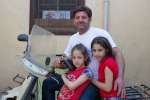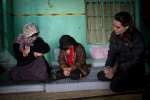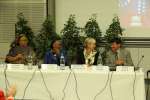Stateless in Beirut
Since Lebanon was established as a country in the 1920s there has been a long-standing stateless population in the country.
There are three main causes for this: the exclusion of certain persons from the latest national census of 1932; legal gaps which deny nationality to some group of individuals; and administrative hurdles that prevent parents from providing proof of the right to citizenship of their newborn children.
Furthermore, a major reason why this situation continues is that under Lebanese law, Lebanese women cannot pass on their nationality to their children, only men can; meaning a child with a stateless father and a Lebanese mother will inherit their father's statelessness.
Although exact numbers are not known, it is generally accepted that many thousands of people lack a recognized nationality in Lebanon and the problem is growing due to the conflict in Syria. Over 50,000 Syrian children have been born in Lebanon since the beginning of the conflict and with over 1 million Syrian refugees in the country this number will increase.
Registering a birth in Lebanon is very complicated and for Syrian parents can include up to five separate administrative steps, including direct contact with the Syrian government. As the first step in establishing a legal identity, failure to properly register a child's birth puts him or her at risk of statelessness and could prevent them travelling with their parents back to Syria one day.
The consequences of being stateless are devastating. Stateless people cannot obtain official identity documents, marriages are not registered and can pass their statelessness on to their children Stateless people are denied access to public healthcare facilities at the same conditions as Lebanese nationals and are unable to own or to inherit property. Without documents they are unable to legally take jobs in public administrations and benefit from social security.
Children can be prevented from enrolling in public schools and are excluded from state exams. Even when they can afford a private education, they are often unable to obtain official certification.
Stateless people are not entitled to passports so cannot travel abroad. Even movement within Lebanon is curtailed, as without documents they risk being detained for being in the country unlawfully. They also do not enjoy basic political rights as voting or running for public office.
This is the story of Walid Sheikhmouss Hussein and his family from Beirut.































